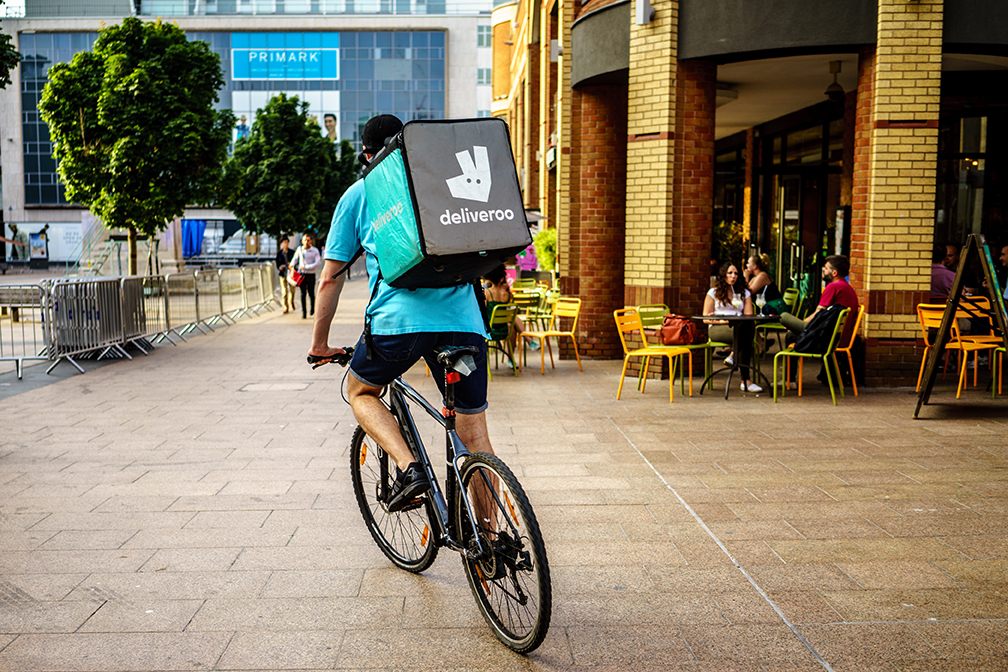Deliveroo Riders Denied Right To Be Defined As ‘Workers’

In a groundbreaking ruling, the UK’s Supreme Court has sided with Deliveroo, determining that its riders cannot be classified as “workers” and, consequently, are not entitled to union representation.
Navigating the Gig Economy: Deliveroo’s Supreme Court Victory
This decision significantly develops the ongoing legal battles surrounding gig economy employment statuses. The Independent Workers’ Union of Great Britain (IWGB) contended that Deliveroo riders should be recognised as “workers” rather than “self-employed,” a status that would grant them the ability to form a collective bargaining unit.
Plan Insurance can accommodate your Motor Fleet Insurance needs, We also offer innovative Pay Per Mile Insurance options. Just fill in our short online quote form, and our professional brokers will be in contact to arrange your insurance.
Unraveling the Employment Relationship
In delivering the court’s decision, Lady Rose emphasised the pivotal role of contractual arrangements in shaping the relationship between Deliveroo and its riders. She pointed out that the current contracts allow riders to have someone else substitute for them without interference from Deliveroo, a privilege not typically afforded in conventional employment arrangements. This aspect, along with the flexibility for riders to choose when they work and even engage with competitors simultaneously, led the court to conclude that the relationship lacks the characteristics of traditional employment, thus precluding the application of union rights.
Setback for Employment Rights Advocates
The Supreme Court’s ruling deals a substantial blow to advocates seeking enhanced employment rights in the gig economy, often compared to the “Wild West” due to its uncharted and evolving nature. The IWGB, spearheading the legal battle on behalf of Deliveroo riders in specific areas, aimed to establish a precedent that could have reverberated across the broader gig economy, affecting an estimated 90,000 workers. Their ambitions included negotiating improvements in pay, working hours, and holiday entitlement, aspirations that now face a significant setback.
Deliveroo’s Unique Position and Industry Implications
Unlike the 2021 Supreme Court ruling that classified Uber drivers as “workers,” providing them with employment rights, Deliveroo’s contractual intricacies led to a different outcome. The court emphasised that the specifics of the deals between Deliveroo and its riders distinguished them from their counterparts in other gig economy platforms. This nuance underscores the importance of examining individual company practices when adjudicating employment status disputes.
Last year, Deliveroo entered into a controversial agreement with the GMB union, a move criticised by IWGB as a mere “publicity stunt.” The agreement guaranteed riders minimum earnings and annual negotiations over working conditions. However, the Supreme Court’s recent decision reiterates the uniqueness of Deliveroo’s employment model, possibly prompting other gig economy companies to adopt similar strategies that align with their commercial interests.
Implications for the Gig Economy Landscape
The Supreme Court’s decision holds broader implications for the gig economy, reaffirming national governments’ discretion in defining the groups eligible for statutory employment protections. Yvonne Gallagher, a partner at Harbottle & Lewis, suggests that the ruling, by highlighting the significance of substitution clauses in determining worker status, may influence other gig economy companies to emulate Deliveroo’s employment approach.
In a statement, Deliveroo expressed satisfaction with the judgment, framing it as a positive outcome for their riders. The company emphasised the appeal of flexibility, a cornerstone of the gig economy, and pledged to continue collaborating with riders to cater to their preferences. The ruling secures Deliveroo’s operational model and may also shape the landscape for gig workers across various platforms, influencing how employment relationships are defined and regulated in this evolving economic sector.
In a landscape where flexibility and worker rights often clash, the Supreme Court’s decision navigates the delicate balance, prioritising contractual nuances in determining employment status over a broad-strokes classification. As the gig economy continues to redefine traditional work structures, this ruling sets a precedent that could guide the future trajectory of employment relations in this dynamic sector.
Find out why 96% of our customers have rated us 4 stars or higher by reading our reviews on Feefo.







